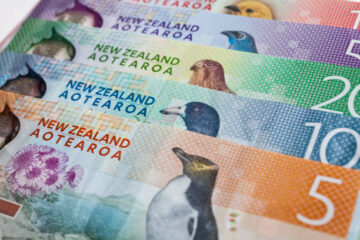Consumer preferences are shifting toward energy drinks, a report says, a fast-growing space.
Energy drinks are flexing their financial muscles, as health-conscious consumers are expected to pump the U.S. market up to $28.25 billion by 2027.
This should be good news for companies like Splash Beverage Group (SBEV) , Coca-Cola (KO) – Get Coca-Cola Company Report, National Beverage (FIZZ) – Get National Beverage Corp. Report, Pepsi (PEP) – Get PepsiCo, Inc. Report and Celsius Holdings (CELH) – Get Celsius Holdings, Inc. Report.
The U.S. energy market was $19.63 billion in 2020, the report said.
The study by Research and Markets said that “expanding health consciousness among individuals, along with sedentary lifestyles and busy schedules of working professionals, is shifting consumer preferences towards functional beverages.”
This, in turn, is continuing to fuel the growth of the United States energy drink industry, the report said.
Why It Matters
The report said that consumption of energy drinks has gained immense popularity among the millennial population over the last decade and “it is an integral part of social gatherings, parties, and celebrations in the United States.”
It is therefore no surprise that many players are scrambling to seduce this young clientele.
Pepsi owns Gatorade and late last year rival Coca-Cola confirmed that it planned to buy full control of sports drink company BodyArmor, paying $5.6 billion for the 85% it didn’t own. The transaction valued BodyArmor at about $8 billion, according to The Wall Street Journal.
Coke bought its initial stake in the sports drink company in August 2018.
Earlier this month, Guggenheim analyst Laurent Grandet upgraded Coke to buy from neutral and boosted his price target to $66 from $61.
“We think the company is emerging leaner, and more agile with a portfolio focused on larger and more profitable brands that should drive better efficiency,” he said. “The savings should help support marketing investments in ’22 back to ‘19 level which should benefit the top line.”
MarketWatch included Celsius Holdings, which reported third-quarter revenue of $94.9 million, up 157% from a year ago, in its list of top 2022 stocks.
The company said that fitness and vending channels posted triple digit growth, which contributed about $11.4 million of incremental revenue compared with a year ago.
Big Picture
Energy drinks are non-alcoholic beverages with high levels of caffeine or other stimulants, plus amino acids, herbs and vitamins. They’re marketed as fatigue killers and refreshing beverages that can improve physical and mental performance – but this may come at a price, researchers say.
They point to high caffeine levels in energy drinks and a “rapidly expanding body of literature” that suggests negative health effects and risky behaviors may be linked to high consumption of the beverages.
Furthermore, ingredients in some of the drinks – such as guarana and taurine – are so poorly studied it’s hard to say whether they’re safe in large quantities.


